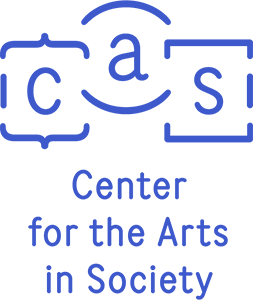100 Years of Colombian Comics
Symposium and Exhibit
April 12 & 13, 2023
Cien años del cómic colombiano” (One Hundred Years of Colombian Comics) is a celebration of the rich history and cultural significance of Colombian comics. The event is a tribute to many of the talented artists, writers, and publishers who have contributed to the development of the industry over the past century.
The event will be held over a two-day period on April 12 and 13 in a hybrid environment, both at Carnegie Mellon and online, and will feature a variety of activities, including:
- Panel discussions featuring prominent comics industry professionals, including writers, artists, and publishers, discussing the history of comics in Colombia and their impact on the cultures of the nation and the region.
- An art exhibition featuring original artwork from some of Colombia's most prolific, impactful and emerging voices.
This event will celebrate not only the rich history of comics in Colombia but also the cultural significance of comics as a form of storytelling and expression.
This event is free and open to the Pittsburgh community, with events in Spanish and English.
VISIT EVENT WEBSITE FOR MORE INFO
The year 1924 has been acknowledged as an inflexion point in the history of Colombian comics, with the publication of Adolfo Samper’s strip “Mojicón” in the illustrated news daily Mundo al día. While it was directly inspired by Walter Berndt’s Smitty, which ran in the Chicago Tribune and in the New York News, “Mojicón” is held as the first Colombian comic strip. To commemorate this achievement, and as a preamble to major centennial events and festivities, we are excited to take this opportunity at CMU to celebrate the history and many artists who have developed the medium of Colombian comics over this past century.
The landscape of Colombian comics–comprising mainstream and independent publishers, premier gathering of artists, fans, and industry players; and the major archives–, has largely been dominated by the capital and largest cities. The outsized role of these cities, however, belies the importance and vibrancy of comics scenes outside them and beyond the country’s borders. In a related fashion, women have been active participants in the Colombian comic scene both as creators and characters, with a growing number of female comic book writers and artists, as well as female-led publishing houses in recent years. Female characters have also become more prominent in Colombian comics, with many authors exploring gender issues and feminist themes. However, the representation of women in Colombian comics has been silenced and repressed for decades, and there is still work to be done to ensure greater diversity and inclusion. Likewise, Colombian graphic narratives have relatively recently developed a deep exploration of sociopolitical themes about memory, gender, migration, illness and sexual identity but only on a few occasions do they intersect with questions of race or ethnicity.
This symposium and exhibit aims to expand visibility and critical scholarship on Colombian comics—historical and contemporary—beyond the mainstream. We would like to open a conversation to the rich history of comics in other areas and beyond borders. This is an opportunity to open up the debate and encourage the study of essential themes on Colombian graphic narratives that, for example, explore issues such as racial or ethnic representation, gender inequalities, or exile.
In keeping with the theme of One Hundred Years of Colombian comics, we have invited artists, scriptwriters, publishers, critics, scholars, and fans, to participate in the celebration with panels and roundtables that examine critically how comics and comics studies can challenge dominant historical narratives and can contribute to a reimagining of Colombian comics industry, society and culture more broadly. Further potential topics for discussion include the following:
- Comics and Colombian history
- Colombian comics and (re)conciliation
- Comics Journalism and social action in Colombia
- Reckoning with Colombian comics’ past
- Re-imaginings of sex and gender in Colombian comics
- Utopian and dystopian futures in Colombian Comics
Co-sponsored by: Department of Modern Languages, CAS, CMU Columbian Students, Dietrich College of HSS Office of Diversity, Equity, and Inclusion, CMU Department of History Global Studies.
